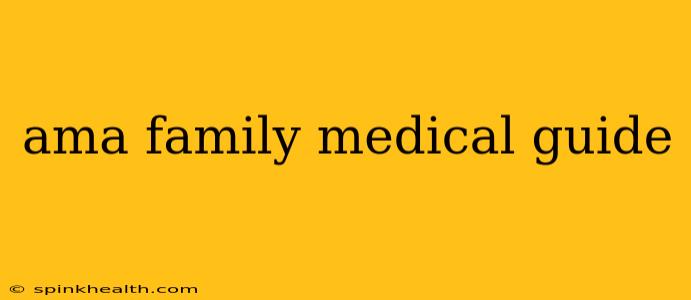Navigating the world of family healthcare can feel like traversing a dense forest. One minute, you're dealing with a scraped knee, the next, you're researching baffling symptoms. This guide aims to be your trusted compass, offering practical advice and empowering you to confidently handle common medical situations at home. Remember, this is not a replacement for professional medical advice; always consult a doctor for serious concerns.
What are the common first aid supplies every family should have?
Every family needs a well-stocked first-aid kit, ready for minor emergencies. Think beyond the basics: you need items to handle cuts, scrapes, burns, allergies, and more. Imagine this scenario: little Timmy falls and scrapes his knee. You need antiseptic wipes to clean the wound, bandages to cover it, and perhaps some antibiotic ointment to prevent infection. But what if Timmy is allergic to bee stings? That's why an antihistamine should be readily available. Your kit should include:
- Antiseptic wipes: To clean minor wounds.
- Bandages (assorted sizes): For covering cuts and scrapes.
- Antibiotic ointment: To prevent infection.
- Pain relievers (acetaminophen or ibuprofen): For pain and fever reduction (always follow age-appropriate dosage instructions).
- Antihistamine: For allergic reactions.
- Tweezers: For removing splinters or ticks.
- Thermometer: To monitor fever.
- Hydrocortisone cream: For minor skin irritations.
- Gauze pads: For larger wounds.
- Roller bandage: For supporting injured limbs.
How can I treat minor cuts and scrapes at home?
Dealing with minor cuts and scrapes is a regular occurrence in most families. My own daughter, Lily, seemed to have a new scrape every week during her adventurous toddler years! The key is to clean the wound thoroughly, prevent infection, and promote healing.
- Wash your hands: This is crucial to avoid introducing bacteria to the wound.
- Clean the wound: Gently wash the area with mild soap and water. Remove any dirt or debris.
- Apply antiseptic: Use antiseptic wipes or a solution to kill any remaining bacteria.
- Apply antibiotic ointment: This helps prevent infection and promotes healing.
- Cover the wound: Use a bandage to protect the area and keep it clean. Change the bandage regularly.
What are some home remedies for common childhood illnesses?
Childhood illnesses are a fact of life. While a doctor’s visit is necessary for serious conditions, many minor ailments can be managed at home with careful observation and simple remedies. Remember, these are suggestions, not medical advice:
- Fever: Use age-appropriate doses of acetaminophen or ibuprofen to reduce fever. Ensure adequate hydration with fluids.
- Cough: Honey (for children over one year old) can soothe a cough. Plenty of rest is also important.
- Sore throat: Gargling with warm salt water can help soothe a sore throat. Rest and hydration are key.
- Common cold: Focus on rest, fluids, and over-the-counter remedies to relieve symptoms like congestion and cough.
When should I take my child to the doctor?
While many minor illnesses can be treated at home, knowing when to seek professional medical help is crucial. Don't hesitate to contact your doctor if your child:
- Has a high fever that persists.
- Shows signs of dehydration (dry mouth, decreased urination).
- Is exhibiting unusual lethargy or irritability.
- Has difficulty breathing.
- Has a persistent cough or other concerning symptoms.
How can I prepare for emergencies at home?
Being prepared for emergencies can ease anxiety and ensure you're ready to act quickly. Develop an emergency plan that includes:
- A well-stocked first-aid kit: As discussed earlier.
- Emergency contact information: Keep a list of important phone numbers readily accessible.
- A plan for evacuation: Know your escape routes in case of fire or other emergencies.
- Knowledge of CPR and first aid: Consider taking a first-aid and CPR course to be prepared for various situations.
This guide provides a starting point for your family's healthcare journey. Remember, proactive measures, a well-stocked first-aid kit, and knowledge of when to seek professional help are your best allies in ensuring the well-being of your family. Always consult a doctor for any serious concerns. Your family’s health is your most precious asset.

